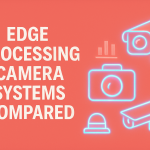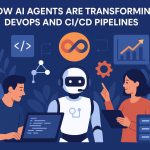Last Updated on August 23, 2025 by Darsh
The landscape of education is undergoing a seismic shift, and artificial intelligence (AI) stands at the epicenter of this revolutionary transformation. As we navigate through 2025, the promise of hyper-personalized learning is no longer a futuristic concept but a tangible reality reshaping how millions of students around the world acquire knowledge and develop skills.
Traditional one-size-fits-all educational approaches are rapidly becoming obsolete, replaced by sophisticated AI systems that understand each learner’s unique needs, preferences, and potential. This revolution isn’t just about technology—it’s about creating educational experiences that adapt, evolve, and optimize in real-time to maximize every student’s learning outcomes.
The Foundation of AI-Powered Personalization
At its core, hyper-personalized learning leverages machine learning algorithms to create individualized educational pathways. These systems analyze vast amounts of data points, including learning speed, comprehension patterns, engagement levels, preferred content formats, and even emotional responses to different types of material.
Modern AI platforms can process information about how a student interacts with content—whether they spend more time on visual materials, prefer step-by-step explanations, or learn better through interactive simulations. This granular understanding enables the creation of learning experiences that feel tailor-made for each individual.
The sophistication of these systems has reached unprecedented levels in 2025. Advanced natural language processing allows AI tutors to engage in meaningful conversations with students, while computer vision technology can analyze facial expressions and body language during virtual learning sessions to gauge understanding and emotional state.
Real-Time Adaptive Assessment and Feedback
One of the most significant breakthroughs in AI-driven education is the development of continuous, adaptive assessment systems. Unlike traditional testing methods that provide snapshots of knowledge at specific moments, these AI systems constantly evaluate student understanding through their interactions with learning materials.
These intelligent assessment tools can identify knowledge gaps the moment they appear, adjusting the curriculum in real-time to address weaknesses before they become entrenched. For instance, if a student struggles with algebraic concepts, the system immediately provides additional practice problems, alternative explanations, or multimedia resources to reinforce understanding.
The feedback loop is instantaneous and constructive. Students no longer wait days or weeks to understand their mistakes; AI tutors provide immediate, specific guidance that helps learners course-correct as they progress through their educational journey.
Multimodal Learning Experiences
AI has enabled the creation of truly multimodal learning environments that cater to different learning styles and preferences. Advanced systems can present the same concept through various formats—visual infographics, audio explanations, interactive simulations, or hands-on virtual experiments—based on what works best for each learner.
Natural language generation capabilities allow AI systems to explain complex concepts in multiple ways, adjusting vocabulary level, examples, and analogies based on the student’s background knowledge and interests. A history lesson about World War II might be presented through the lens of technology innovation for one student, while another might receive the same information framed around human stories and personal narratives.
Voice-enabled AI tutors have become particularly sophisticated, engaging students in natural conversations that feel more like discussions with knowledgeable mentors than interactions with machines. These systems can detect confusion in a student’s voice, pause to provide clarification, and even inject appropriate humor to maintain engagement.
Predictive Analytics for Learning Success
Perhaps one of the most powerful applications of AI in education is its ability to predict and prevent learning difficulties before they become problematic. Advanced analytics can identify patterns that indicate when a student might be at risk of falling behind, struggling with specific concepts, or losing motivation.
These predictive capabilities extend beyond academic performance to encompass emotional and social factors that impact learning. AI systems can detect signs of frustration, boredom, or anxiety, automatically adjusting the pace, content difficulty, or presentation style to maintain optimal learning conditions.
Early intervention becomes possible when AI identifies students who might benefit from additional support, alternative learning approaches, or even brief breaks to maintain mental well-being. This proactive approach prevents small issues from becoming major obstacles to educational success.
Personalized Content Creation and Curation
AI has revolutionized how educational content is created and curated for individual learners. Sophisticated algorithms can generate practice problems, create reading materials at appropriate difficulty levels, and even produce educational games tailored to specific learning objectives and student interests.
Content curation has become incredibly sophisticated, with AI systems drawing from vast repositories of educational resources to select materials that align perfectly with each student’s current knowledge level, learning goals, and interests. A student passionate about space exploration might receive math problems involving orbital calculations, while another interested in cooking might encounter the same mathematical concepts through recipe scaling exercises.
Dynamic content generation ensures that students never run out of appropriate practice materials. AI can create infinite variations of problems and exercises, maintaining the right level of challenge while preventing the repetition that often leads to boredom in traditional educational settings.
Breaking Down Geographic and Economic Barriers
One of the most promising aspects of AI-powered personalized learning is its potential to democratize access to high-quality education. Advanced AI tutors can provide world-class educational experiences to students regardless of their geographic location or economic circumstances.
Rural students who previously lacked access to specialized teachers or advanced courses can now receive personalized instruction in subjects ranging from advanced mathematics to foreign languages. AI systems can adapt to local contexts while maintaining educational standards, incorporating regional examples and cultural references that make learning more relevant and engaging.
The scalability of AI education means that personalized tutoring, once available only to the wealthy, can now reach millions of students simultaneously. Each learner receives individualized attention without the traditional constraints of teacher-to-student ratios or classroom limitations.
Collaborative AI and Human Educators
The most successful implementations of AI in education recognize that technology works best in partnership with human educators rather than as a replacement. AI handles the heavy lifting of content personalization, assessment, and routine instruction, freeing teachers to focus on higher-level mentoring, emotional support, and creative problem-solving.
Teachers equipped with AI insights can make more informed decisions about how to support individual students. Detailed analytics provide educators with unprecedented visibility into each student’s learning journey, highlighting areas where human intervention might be most beneficial.
This collaborative approach enhances rather than diminishes the human element in education. Teachers can spend more time on activities that uniquely require human skills—inspiring creativity, facilitating group discussions, providing emotional support, and helping students develop critical thinking and social skills.
Educational institutions looking to implement AI solutions can benefit from exploring affordable AI tools designed for small businesses, many of which can be adapted for educational environments to boost administrative efficiency and support personalized learning initiatives.
Challenges and Ethical Considerations
The rapid advancement of AI in education brings important challenges that must be addressed thoughtfully. Privacy concerns around student data collection and usage require robust protection measures and transparent policies about how information is gathered and utilized.
There’s also the risk of creating “filter bubbles” where AI systems reinforce existing knowledge patterns rather than challenging students to explore new areas of learning. Ensuring that personalization enhances rather than limits educational breadth requires careful algorithm design and ongoing oversight.
Equity remains a significant concern, as access to advanced AI educational tools may initially favor students in well-resourced schools or families. Addressing these disparities requires intentional efforts to ensure that AI-powered personalized learning benefits all students, not just those with existing advantages.
Looking Ahead: The Future of AI-Personalized Learning
As we progress through 2025 and beyond, the integration of AI in education will likely become even more seamless and sophisticated. Emerging technologies like augmented reality and virtual reality will create immersive learning environments that adapt in real-time to student needs and preferences.
The development of more advanced emotional AI will enable systems to better understand and respond to the full spectrum of human learning experiences, including motivation, confidence, and social learning dynamics.
Educators and administrators seeking to integrate these technologies into their institutions can explore comprehensive guides to the best AI tools available to make informed decisions about which solutions align with their specific educational goals and student needs.
For educators, parents, and policymakers interested in staying current with these rapid developments in educational technology, exploring future AI startup trends and opportunities can provide valuable insights into emerging innovations in the ed-tech space.
As AI continues to evolve, the goal remains constant: creating educational experiences that unlock every learner’s potential by providing the right content, at the right time, in the right way. The revolution in hyper-personalized learning represents more than technological advancement—it’s a fundamental reimagining of what education can be when it truly serves the individual needs of every student.
The future of learning is not just personalized; it’s intelligent, adaptive, and infinitely scalable. As we witness this transformation unfold, we’re seeing the emergence of an educational paradigm that promises to make quality learning accessible to all while honoring the unique journey of each learner.
For more insights on educational technology trends and AI innovations, visit the MIT Technology Review Education Section and explore the latest research from the Stanford Institute for Human-Centered AI.



